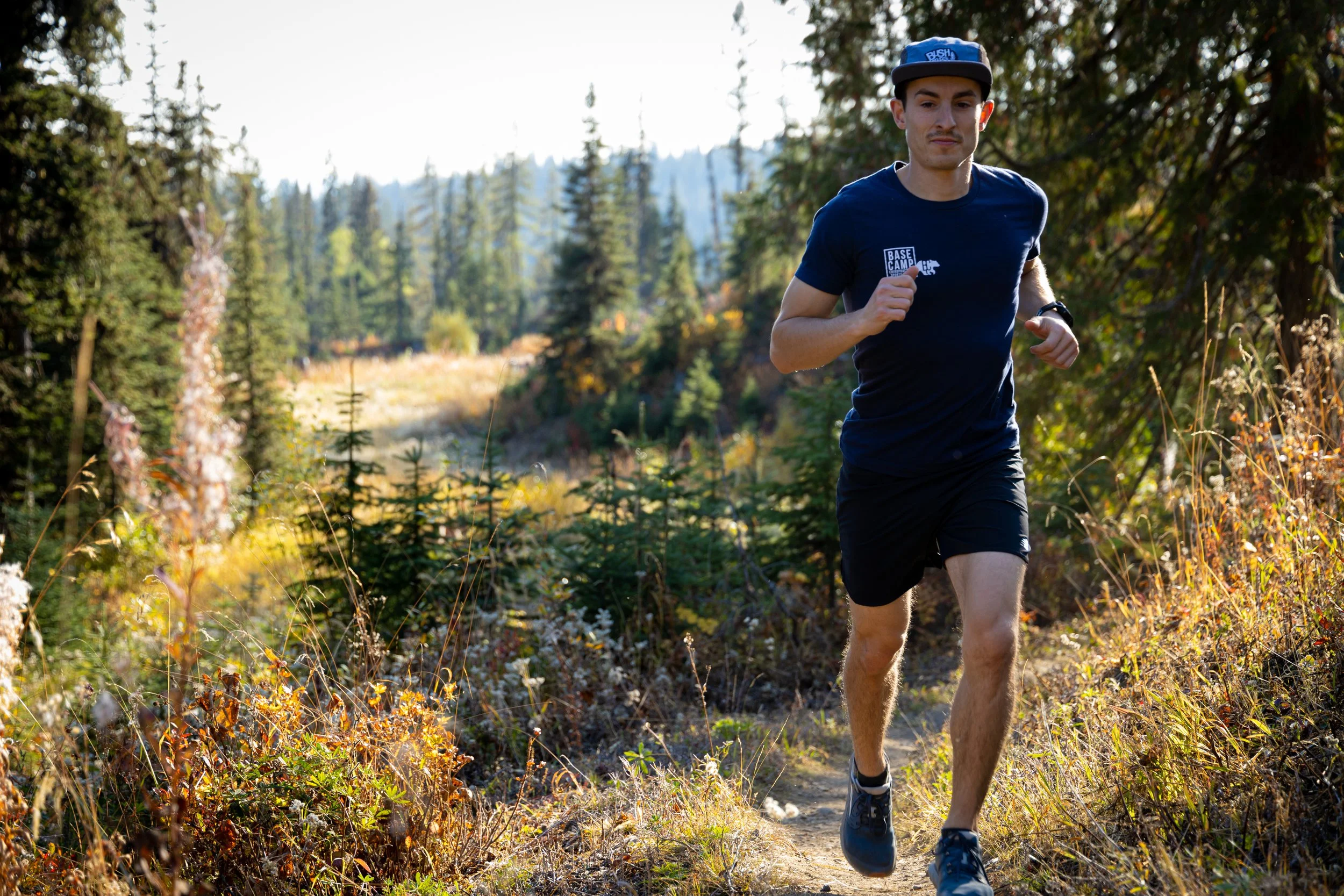
Blog
want to take a crack at your injuries from home?
Check out our blog posts and find the topics specific to you
Topics:
6 questions to ask your new physiotherapist
How do you know if you have a good Physiotherapist? Here are the 6 questions you should ask them.
Not all Physiotherapists are created equal.
Some of them are up to date on the research and do their absolute best to keep YOUR best in mind. Others? Not so much.
If you plan on seeing a Physiotherapist in Vernon, here are the Top 6 Questions you should ask them:
1 - What does my treatment plan look like?
Your Physiotherapist should have a plan and be able to explain it to you. That doesn’t mean that everything will always go according to plan, but you at least need to be following one. They should be able to tell you an estimate for how long and how many visits your treatment will take.
2 - What will each appointment look like?
You should know what your appointments will include so that you are better prepared for them each week. You Physiotherapist should be able to tell you what to expect.
3 - When do you think I will be feeling better and how long will you need to see me?
This one is a tricky one because everyone is different. But… your Physiotherapist should be able to give you an estimate of how long it takes to recover, based on how long their patients have taken to recover and what the current research says.
4 - What are some alternatives treatments?
There are many ways to approach a problem, and pain is no different. No single treatment method is absolutely necessary to treat ANY body injury. If you do not like being adjusted, you do not have to be adjusted. If you don’t like a certain exercise, there are plenty of others to choose from. A good Physiotherapist should recognize that and be able to give you alternative treatment options.
5 - Will this condition get better on its’ own?
Most conditions get better on their own. This is a fact. If you ask your Physiotherapist and they tell you that your back pain will get worse if you don’t get your hip put back into place, or your neck will get arthritis because of your poor posture, they are trying to scare you into a treatment plan.
That said, even people with conditions that eventually get better on their own often benefit from treatment and a rehab plan.
6 - What can I do at home to help me with my pain?
Repeat after me: “I am responsible for my own fate”
If your Physiotherapist does not give you anything to do at home to help manage your pain or progress your condition, find a new Physio.
Not sure where to start?
We can help.
If you are looking for someone in Vernon to help you with your injuries, I can help you in person.
If you are looking for a clinician in BC, I can see you virtually, or I can point you in the right direction to find someone near you.
Author: Dr Mark Murdoch, Chiropractor and Co-Founder at Base Camp Chiropractic and Sports Rehab in Vernon, BC.
Mark Murdoch is a Doctor of Chiropractic with a Master’s Degree in Sports Medicine.
Contact: drmurdoch@basecampclinic.com
Book an Appointment with Dr Murdoch: book here
Instagram: Base.Camp.Doc
6 questions to ask your new chiropractor
Not all chiropractors are created equal. Here is how to tell if you have a good one.
Not all Chiropractors are created equal.
Some of them are up to date on the research and do their absolute best to keep YOUR best in mind. Others? Not so much.
If you plan on seeing a Chiropractor in Vernon, here are the Top 6 Questions you should ask them at your first visit:
1 - What does my treatment plan look like?
Your chiropractor should have a plan and be able to explain it to you. That doesn’t mean that everything will always go according to plan, but you at least need to be following one. They should be able to tell you an estimate for how long and how many visits your treatment will take.
2 - What will each appointment look like?
You should know what your appointments will include so that you are better prepared for them each week. Your chiropractor should be able to tell you what to expect.
3 - When do you think I will be feeling better and how long will you need to see me for?
This one is a tricky one because everyone is different. But… your Chiropractor should be able to give you an estimate of how long it takes to recover, based on how long their patients have taken to recover and what the current research says.
4 - What are some alternatives to adjusting?
Chiropractic adjustments do not solve all problems. They also are not absolutely necessary to treat ANY condition. If you do not like being adjusted, you do not have to be adjusted. A good chiropractor should recognize that and be able to give you alternative treatment options.
5 - Will this condition get better on its’ own?
Most conditions get better on their own. This is a fact. If you ask your chiropractor and they tell you that your back pain will get worse if you don’t get adjusted or your neck will get arthritis because you need your bones put back in place, they are trying to scare you into treatment.
That said, even people with conditions that eventually get better on their own often benefit from treatment and a rehab plan.
6 - What can I do at home to help me with my pain?
Repeat after me: “I am responsible for my own fate”
If your Chiropractor does not give you anything to do at home to help manage your pain or progress your condition, find a new Chiropractor.
Not sure where to start?
We can help.
If you are looking for a Chiropractor in Vernon, I can help you in person.
If you are looking for a Chiropractor in BC, I can see you virtually, or I can point you in the right direction to find someone near you.
Author: Dr Mark Murdoch, Chiropractor and Co-Founder at Base Camp Chiropractic and Sports Rehab in Vernon, BC.
Mark Murdoch is a Doctor of Chiropractic with a Master’s Degree in Sports Medicine.
Contact: drmurdoch@basecampclinic.com
Book an Appointment with Dr Murdoch: book here
Instagram: Base.Camp.Doc
You Are Not Fragile
You are not fragile. Our bodies are designed to keep us moving forward and that is basically a super power.
Good news! Most injuries do not have to become lifelong struggles. Our bones rebuild, our cells regrow, our neurons learn new pathways. Human bodies are designed to be highly adaptable.
Our softness is sometimes purely mental. Driven by the fear of re-injury, an internal dialogue we tell ourselves plays on repeat based on our Dr. Google searches or incomplete conversations with our doctors.
Repeat after me: I am not a chocolate souffle’. You have order, structure and the ability to move forward. This is why it’s important to have a conversation with your doctor about your injury and the healing process.
We all have our dings and dents.
We are surrounded by stories of strength and adaptivity. A man jumped over the Great Wall of China on a skateboard with two broken ankles. A woman runs ultra marathons after being told she had arthritic knees and should restrict herself to walking. A man moved a 1000 pounds off the ground after a disc injury to his back years before. Ask any person who has been pregnant and given birth about adaptivity and they will no doubt have a good chuckle.
How do injuries happen?
Injuries are the body's response to overload. There are 2 types of overload: acute and chronic.
Acute load is when you take a tumble on your skis and reach out to break the fall, thus breaking your wrist. It’s a quick insult to the tissues that pushes past the threshold of structural integrity rebuilding.
Chronic load is when you spend 8 hours a day sitting like a banana in your desk chair. This is multiple insults to the tissue that will eventually cause pain because the body can’t keep up.
What does healing tissue look like?
Healing time is based on 4 main things:
Age
Degree of injury
Amount of load to tissues
Overall health of person
Younger people tend to heal faster. The degree or grade of injury may require more time to heal. For example: An athlete with a Grade 1 (ligament irritation) ankle sprain will take less time to heal than a person of similar age and lifestyle who has a Grade 3 (full ligament rupture) ankle sprain.
Ligamentous injuries like sprained ankles take as little as 6 weeks to heal. Muscular injuries like groin strains take as little as 3 weeks to heal. Bone injuries like stress fractures take approximately 6 to 12 weeks to heal. Neuromuscular injuries like disc herniations take approximately 12 weeks to heal.
But my doctor said my scoliosis will always give me back pain.
Injuries are not the only thing that can make us feel fragile. Sometimes we are told that our anatomy or structure predisposes us to further injury down the line. Many people are told that things like scoliosis, spinal alignment and osteoarthritis may make life more difficult for them down the road. This is not often the case. Structure does not dictate function. I plant my flag firmly in this ground.
One study of 230 knees on 115 pain-free adults (mean age of 44 years old) showed abnormalities (meniscus tearing, cartilage damage or bone marrow legions) in at least one knee in every patient.
It’s important to have a conversion with your doctor or chiropractor or physiotherapist about your concerns around your injury.
Things to ask your doc:
How long will it take for this injury to fully heal?
What can I do to ensure this process doesn’t take longer?
Is there any reason I should believe this may be a long term struggle for me in my activities I enjoy doing?
How do I build strength around this injury?
Bottom line: You are not merely a meat bag moving in three planes. Your injury should not make you feel fragile. We all get ego checks but it shouldn’t keep us from doing what we love. Have a conversation with your doc today about how you can feel stronger around your injuries.
Author: Dr Sam Krieg, Chiropractor and Co-Founder at Base Camp Sport and Spine in Vernon, BC.
Contact: drkrieg@basecampclinic.com
Disclaimer: This blog is intended for general informational purposes only and is not intended for the delivery of medical advice. No doctor/patient relationship is formed. The use of information on this blog or materials linked from this blog is at the user's own risk. The content of this blog and website is not intended to be a substitute for medical advice.
References:
Horga LM, Hirschmann AC, Henckel J, Fotiadou A, Di Laura A, Torlasco C, D'Silva A, Sharma S, Moon JC, Hart AJ. Prevalence of abnormal findings in 230 knees of asymptomatic adults using 3.0 T MRI. Skeletal Radiol. 2020 Jul;49(7):1099-1107. doi: 10.1007/s00256-020-03394-z. Epub 2020 Feb 14. PMID: 32060622; PMCID: PMC7237395.
Written by: Sam Krieg DC in Vernon, British Columbia at Base Camp Sport and Spine
The First 5 Questions to Ask your Chiropractor
If you live in Vernon, BC or are near the North Okanagan and are looking for YOUR chiropractor than this post is for you! At Base Camp Sport and Spine, we provide the most personalized treatment possible before booking an appointment with our team. We want to make sure that you are a good fit for us and vice versa. We've put together this list of 5 questions that we think everyone should ask their local chiropractor…
Choosing a Chiropractor can be difficult. Many doctors use outdated treatment methods and are using the best treatment methods for their patients. My friend and colleague, Dr. Alex Hueston, is here to help.
Here are the FIRST 5 questions to ask when you are looking for a Chiropractor.
If you live in Vernon, BC or are near the North Okanagan and are looking for YOUR chiropractor than this post is for you! At Base Camp Sport and Spine, we provide the most personalized treatment possible before booking an appointment with our team. We want to make sure that you are a good fit for us and vice versa. Our friend, Dr. Alex Hueston, has put together this list of 5 questions that we think everyone should ask their local chiropractor as they prepare for an initial consultation:
Written by Dr. Alex Hueston. Chiropractor at Young Health Management in Duncan, BC (Vancouver Island). www.younghealthmgmt.com
1. What is the most common type of injury you see in your office on a regular basis?
2. How do you feel about different types of treatments, such as acupuncture and massage therapy?
3. What should people know before they go to see a chiropractor for the first time?
4. What is a chiropractic adjustment or manipulation?
5. What are some other ways I can keep my spine healthy while still at home (exercises, nutrition)?
*Disclaimer: Content on this blog should not be construed as medical advice.
1. What is the most common type of injury you see in your office on a regular basis?
Most people think to come see their chiropractor when they have pain near the spine, but what many don't realize is that a visit with your chiropractor can also help treat conditions related to nerves and joints in extremities (knees, ankles, feet).
Chiropractic care has also been helpful in treating conditions such as headaches, menstrual cramps, and emotional stress.
2. How do you feel about different types of treatments, such as acupuncture and massage therapy?
At our clinic we have an integrated team of practitioners trained in many different treatments, including acupuncture and massage therapy. We also incorporate forms of active care such as exercise and diet modification.
It is important to know that there are many different types of treatments for helping you stay healthy - some work better for you than others depending on what condition you're working with and how severe it is. We'll take a look at all the options together so we can find out which one is the right fit for you.
3. What should people know before they go to see a chiropractor for the first time?
The first thing people should know going into their appointment with a chiropractor is that it's often not as painful as they expect. You may feel some heat and pressure, but nothing too intense or unbearable. The goal of the treatment at your initial visit will be to find out where you're experiencing pain and what might be causing it so we can find a treatment strategy that is best for you.
The other thing to keep in mind before your appointment with a chiropractor is that they are trained experts and have experience working on people from all different backgrounds, ages, and physical abilities--so there's no need to be nervous!
4. What is a chiropractic adjustment or manipulation?
A chiropractic adjustment or manipulation is a safe, low-risk form of manual therapy that involves the application of controlled thrusts to joints, ligaments and muscle tissue.
The purpose of this treatment is usually to reduce pressure and inflammation in joints that causes pain and reduces mobility.
5. What are some other ways I can keep my spine healthy while still at home (exercises, nutrition)?
One of the most important things you can do to help keep your spine healthy is exercise. It's been shown that exercising regularly not only strengthens and promotes flexibility in the muscles surrounding your spine but also reduces stress, anxiety, depression and back pain.
Here on Vancouver Island, BC adventure is never far away. You can find beautiful trails stretching across the island, like the West Coast Trail and the lesser known Juan De Fuca Trail. Just make sure to pack a lunch and plenty of water!
In Conclusion . . .
We hope you found this post informative and that it has answered a few of your questions about the type of services we provide here at Young Health Management. If you’re interested in making an appointment with one of our mental health professionals, please don't hesitate to book online today!
*Disclaimer: Content on this blog should not be construed as medical advice.
Author:
Dr. Alex Hueston is a Chiropractor in Duncan, BC at the Young Health Management clinic. www.younghealthmgmt.com
Disclaimer: This blog is intended for general informational purposes only and is not intended for the delivery of medical advice. No doctor/patient relationship is formed. The use of information on this blog or materials linked from this blog is at the user's own risk. The content of this blog and website is not intended to be a substitute for medical advice.

























How running injuries happen